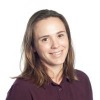Main Menu (Mobile)- Block
- Overview
-
Support Teams
- Overview
- Anatomy and Histology
- Cryo-Electron Microscopy
- Electron Microscopy
- Flow Cytometry
- Gene Targeting and Transgenics
- Immortalized Cell Line Culture
- Integrative Imaging
- Invertebrate Shared Resource
- Janelia Experimental Technology
- Mass Spectrometry
- Media Prep
- Molecular Genomics
- Primary & iPS Cell Culture
- Project Pipeline Support
- Project Technical Resources
- Quantitative Genomics
- Scientific Computing Software
- Scientific Computing Systems
- Viral Tools
- Vivarium
- Open Science
- You + Janelia
- About Us
Main Menu - Block
- Overview
- Anatomy and Histology
- Cryo-Electron Microscopy
- Electron Microscopy
- Flow Cytometry
- Gene Targeting and Transgenics
- Immortalized Cell Line Culture
- Integrative Imaging
- Invertebrate Shared Resource
- Janelia Experimental Technology
- Mass Spectrometry
- Media Prep
- Molecular Genomics
- Primary & iPS Cell Culture
- Project Pipeline Support
- Project Technical Resources
- Quantitative Genomics
- Scientific Computing Software
- Scientific Computing Systems
- Viral Tools
- Vivarium
Abstract
To attain a faculty position, postdoctoral fellows submit job applications that require considerable time and effort to produce. Although mentors and colleagues review these applications, postdocs rarely receive iterative feedback from reviewers with the breadth of expertise typically found on an academic search committee. To address this gap, we describe an international peer-reviewing programme for postdocs across disciplines to receive reciprocal, iterative feedback on faculty applications. A participant survey revealed that nearly all participants would recommend the programme to others. Furthermore, our programme was more likely to attract postdocs who struggled to find mentoring, possibly because of their identity as a woman or member of an underrepresented population in STEM or because they changed fields. Between 2018 and 2021, our programme provided nearly 150 early career academics with a diverse and supportive community of peer mentors during the difficult search for a faculty position and continues to do so today. As the transition from postdoc to faculty represents the largest 'leak' in the academic pipeline, implementation of similar programmes by universities or professional societies would provide psycho-social support necessary to prevent attrition of individuals from underrepresented populations as well as increase the chances of success for early career academics in their search for independence.


